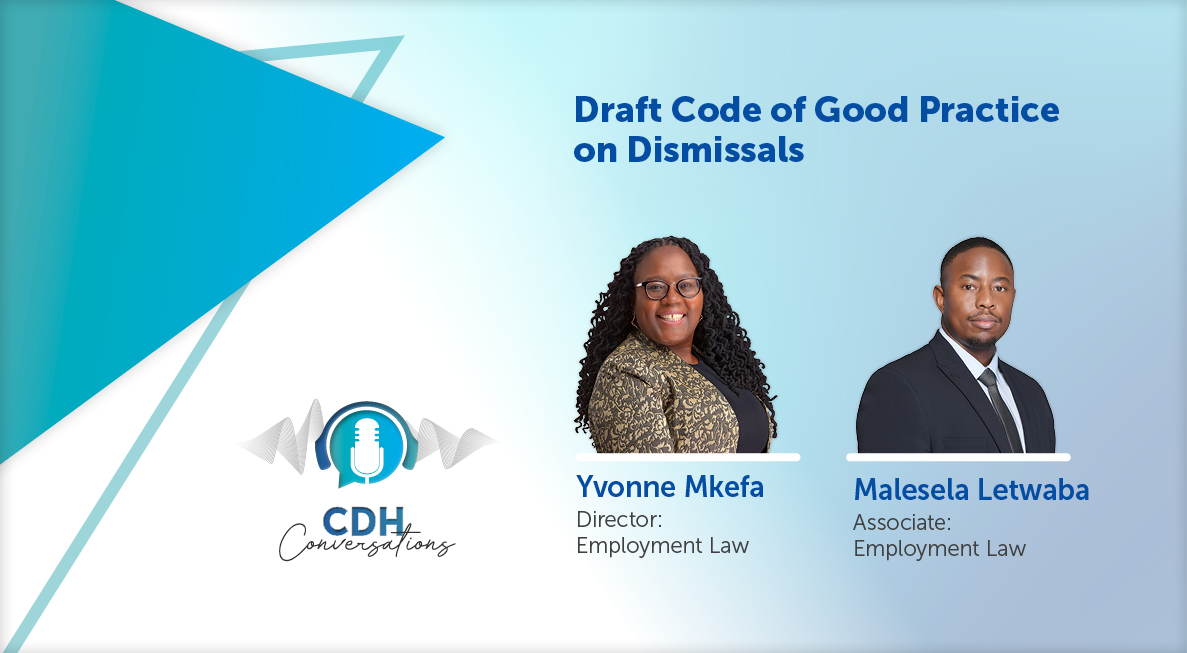Returning to work: Opportunities and challenges
At a glance
- The COVID-19 pandemic has led to a shift in the employment landscape in Kenya, with employers facing new obligations to ensure the safety and health of their employees, including implementing hygiene measures and providing protective equipment.
- Working from home has presented opportunities for some employers and industries, allowing them to reduce operational costs and increase productivity. Flexible working arrangements and consultancy arrangements have become more common as employers adapt to the new employment landscape.
- Employers also face challenges, including potential liability if employees contract COVID-19 at the workplace. They need to demonstrate that they took reasonable precautions to minimize the risk of infection. Return-to-work policies and vaccination requirements may also give rise to discrimination claims, emphasizing the need for transparent communication with employees.
Obligations
Not only did the COVID-19 pandemic restrict the freedom of movement of employers and employees alike, but it enhanced protocols and policies in the workplace. The Occupational Health and Safety Act, 2007 places an obligation on employers to ensure the safety, health and welfare of their employees. Following the declaration of COVID-19 as a pandemic in Kenya, the Government issued the Occupational Safety and Health Advisory on Coronavirus which issued various recommendations to employers for them to apply various hygiene measures at the workplace. These recommendations were later codified into law by the passing of Public Health (COVID-19 Restriction of Movement of Persons and Related Measures) Rules 2020.
In addition, the Memorandum of Understanding (20 April 2020) signed by the Tripartite Social Partners - Ministry of Labour and Social Protection, the Central Organisation of Trade Unions and the Federation of Kenya Employers sought to address emerging labour and employment issues during the COVID -19 pandemic by requiring employers to provide adequate protective clothing and protective equipment at no cost to the employees.
Further, it is now mandatory for employers to ensure that there are permanent social distancing measures of at least 1.5 metres at the workplace. All these new obligations have made it vital for employers to review their employment infrastructure and make alternative and feasibly costly arrangements thereto.
Opportunities
For some employers and for some industries however, the pandemic has demonstrated that work can still be done, and results achieved without the confines of an office set up.
During the two lockdowns and the continuous curfew that Kenya has experienced, employees working from home have demonstrated a new normal to employers and businesses. Businesses have been able to keep their operational costs low and stay afloat. Employees have not been required to come into the office – saving transportation costs and time spent in traffic, employers have not been required to provide “lunch” or other social amenities or catered to social events, thus saving on those costs and emptier offices have meant a reduction in utility bills overall. Employers have taken full advantage of these changes and looked further at how to increase productivity while not compromising quality. Flexible working arrangements, shift work and moving from permanent to consultancy arrangements have slowly crept into company policies, and employment handbooks as employers try to embrace this new employment landscape. While Kenyan labour laws do not expressly deal with part-time employees and flexible working arrangements, employers have been seeking advice on how to amend HR policies and individual employment contracts in a jurisdiction that is very employee friendly.
Challenges: Employers’ liability
These “opportunities” are however doubled edged swords. The obvious and first challenge for employers during this pandemic has been - Can an employer be held liable when an employee is infected at the workplace? The Work Injuries and Benefits Act (WIBA) expressly provides that injuries covered and subject to compensation by an employer are those that are sustained in the course of employment. Injuries includes;
“any other disease that arose out of and in the course of the employee’s employment”.
While COVID-19 is not expressly provided for under WIBA it can be argued that if an employee contracts COVID-19 while at the workplace or while carrying out their work then they are entitled to compensation. The burden rests on the employer to demonstrate that they took all the reasonable precautions to reduce or minimise the risk of infection. Associated with this challenge is the concept of “whilst in employment” and this is especially the case where policies and handbooks have extended employment to working at home.
In implementing return to work policies, employers are faced with the additional challenge of how to allow employees to return to work. Lying dormant are potential discrimination claims for those coerced into vaccinations or worst still those refusing to wear masks. Open and transparent communication with employees will be key in this regard.
Conclusion
All in all, we anticipate that employers will embrace the changes brought by the pandemic and the shift from the traditional employment approach to a more flexible employment landscape in Kenya. We can only await with anticipation to review the jurisprudence that may emanate from the employment challenges brought about by the COVID-19 pandemic and the precedents they will form in the future.
The above alert is meant for general information and does not constitute legal advice. In case of any inquiries or if you require any further information or advice, please feel free to contact Desmond Odhiambo and Njeri Wagacha.
The information and material published on this website is provided for general purposes only and does not constitute legal advice. We make every effort to ensure that the content is updated regularly and to offer the most current and accurate information. Please consult one of our lawyers on any specific legal problem or matter. We accept no responsibility for any loss or damage, whether direct or consequential, which may arise from reliance on the information contained in these pages. Please refer to our full terms and conditions. Copyright © 2026 Cliffe Dekker Hofmeyr. All rights reserved. For permission to reproduce an article or publication, please contact us cliffedekkerhofmeyr@cdhlegal.com.
Subscribe
We support our clients’ strategic and operational needs by offering innovative, integrated and high quality thought leadership. To stay up to date on the latest legal developments that may potentially impact your business, subscribe to our alerts, seminar and webinar invitations.
Subscribe




